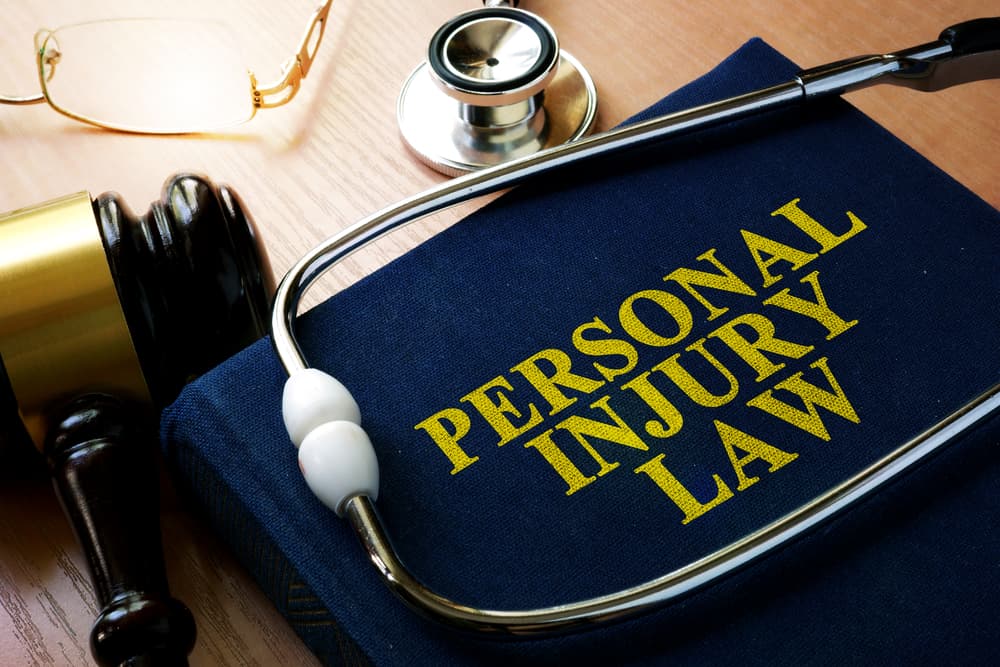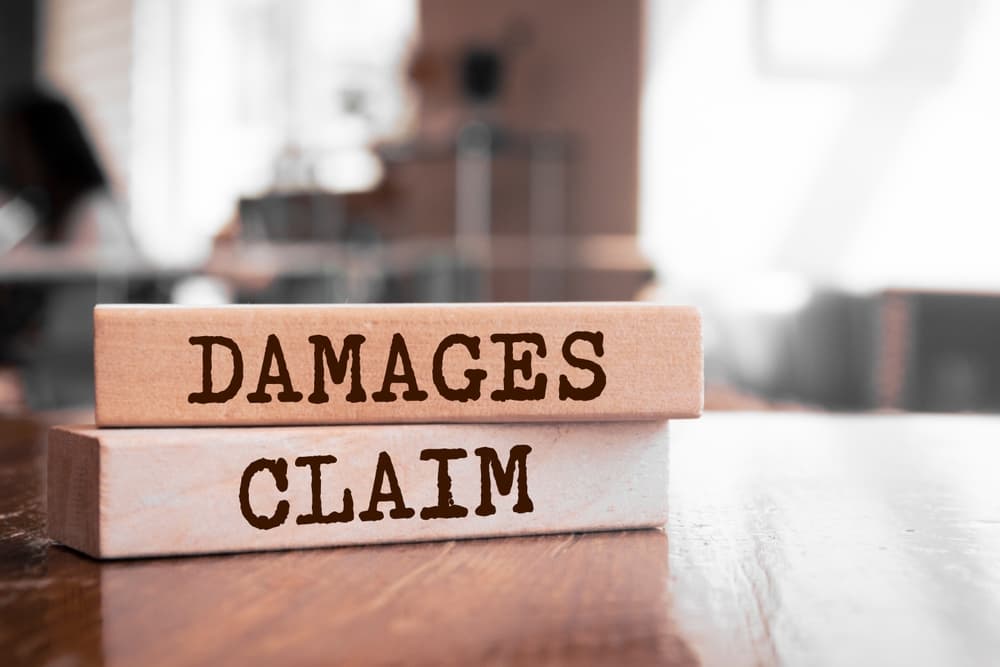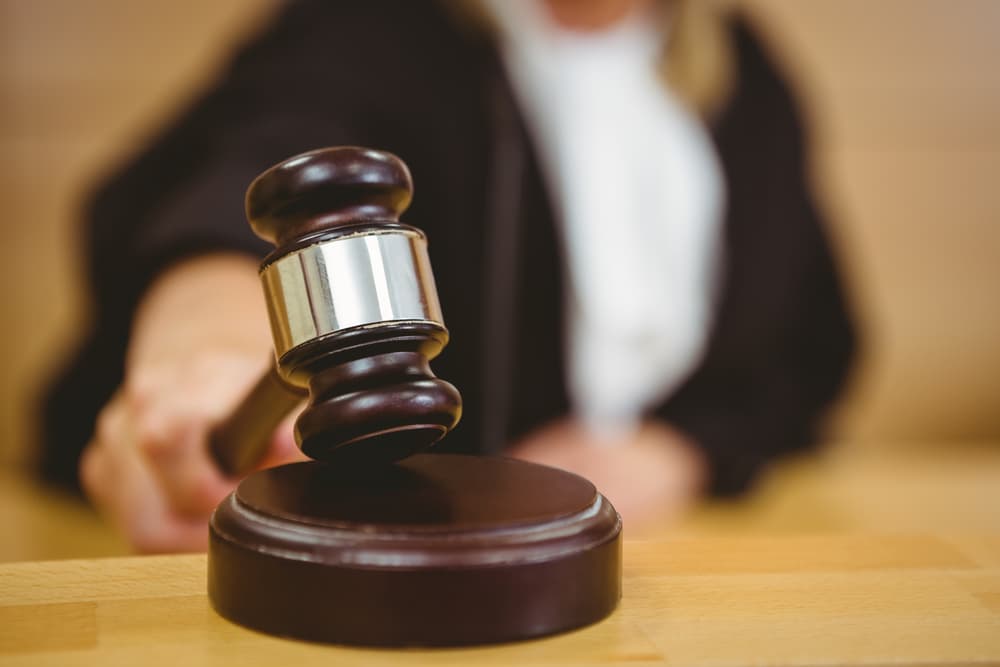Statute of Limitations in VirginiaStatute of Limitations in Virginia
Personal injury cases and the laws and statutes that pertain to them can be quite confusing to someone who needs to rely on them. This is why it’s usually in an injured party’s best interest to hire an experienced personal injury attorney. One major factor that injured parties must consider is the statute of limitations, which refers to the period in which a person must file a lawsuit for their personal injury claim.
In Virginia, the statute of limitations for personal injury cases is generally two years from the date of the injury. However, there are exceptions and other factors that can arise, such as cases involving minors or medical malpractice. Be sure to consult a knowledgeable personal injury lawyer to ensure you understand and meet your case’s specific statute of limitations. You will want to contact an attorney near you who can guide you through the legal process and protect your rights.
What is a Personal Injury?

Before understanding Virginia’s personal injury statute of limitations, it is vital to realize what constitutes a personal injury. A personal injury refers to any physical, mental, or emotional harm caused by the negligence or intentional actions of another person, entity, or organization. Personal injury cases can arise from various situations, including:
- Car Accidents: Accidents involving cars, trucks, motorcycles, or other motor vehicles can result in serious injuries, such as broken bones, whiplash, traumatic brain injuries (TBI), or spinal cord injuries (SCI).
- Slip and Fall Accidents: Property owners have a duty to maintain their premises in a safe condition. Suppose you slip, trip, or fall due to hazardous conditions on someone else’s property, such as a wet floor, uneven pavement, or inadequate lighting. In that case, you may have a valid personal injury claim.
- Medical Malpractice: When healthcare professionals fail to provide a standard level of care, resulting in injury or death to a patient, it may be considered medical malpractice. Examples include surgical errors, misdiagnoses, medication errors, or birth injuries.
- Workplace Accidents: You may be eligible for workers’ compensation benefits if you sustain an injury while working. However, personal injury claims against third parties may also be possible.
- Product Liability: If you suffered an injury due to a defective or dangerous product, you can hold the manufacturer or seller accountable for your injuries. Product liability cases can include defective car parts, pharmaceutical drugs, or faulty consumer products.
These are just a few examples of personal injury cases. If you believe you have a personal injury claim, consult with a personal injury attorney in Virginia to assess the viability of your case and handle the legal process.
Damages in a Personal Injury Claim

When you’ve suffered an injury due to someone else’s negligence, understanding the potential damages you may be entitled to is imperative. In a personal injury claim, damages refer to the financial compensation you may receive for the physical, emotional, and financial losses you’ve suffered. These damages include medical expenses, lost income, pain and suffering, and more.
Medical expenses are one of the most common types of damages in a personal injury claim. It includes the costs of hospital stays, surgeries, medications, rehabilitation, and any future medical treatment related to your injuries. It’s important to keep track of all medical bills and receipts to ensure you receive proper compensation for these expenses.
Lost income is another significant component of damages in a personal injury claim. If your injuries have caused you to miss work, you may be entitled to compensation for your lost income. It can include both past and future lost income, depending on the extent of your injuries and their impact on your ability to work.
In addition to economic damages like medical expenses and lost income, you may also be eligible for non-economic damages such as pain and suffering. These damages are less tangible but equally important. Pain and suffering compensation takes into account the physical and emotional pain you’ve endured as a result of the accident, as well as any lasting effects on your quality of life.
Understanding the Statute of Limitations
The statute of limitations is a legal principle that sets a time limit for filing a lawsuit. It is designed to balance the needs of injured victims and the defendants by ensuring that claims are brought on time while allowing for the necessary investigation and preparation of a case. In Virginia, the statute of limitations for personal injury cases is generally two years from the date of the injury, as mentioned earlier. It means that you have two years to file a lawsuit seeking compensation for your injuries.
Exceptions and Extenuating Factors

While the general rule is a two-year statute of limitations, there are exceptions and extenuating factors that can affect the timeframe for filing a personal injury claim in Virginia. It is important to be aware of these exceptions to ensure that you do not miss the deadline for filing your lawsuit. Some of the exceptions and circumstances include:
Cases Involving Minors
In cases where the injured victim is a minor, the statute of limitations is tolled or paused until the minor reaches the age of 18. Once the minor turns 18, they have two years to file a lawsuit for their personal injury claim. It is important to note that this exception does not apply if the minor was emancipated before turning 18.
Medical Malpractice Cases
Medical malpractice cases in Virginia have their own set of rules when it comes to the statute of limitations. Generally, the statute of limitations is two years from the date of the negligent act or omission that caused the injury or from the date that the injured victim reasonably should have discovered the injury, whichever comes first. However, there is an overall limit of 10 years from the date of the negligent act or omission, regardless of when the injury was discovered. It means that, in most cases, you have a maximum of 10 years to file a medical malpractice lawsuit in Virginia.
Government and Public Entity Cases
Some specific rules and limitations apply when a personal injury claim involves a government or public entity, such as a city or state agency. In Virginia, if you suffered an injury due to the negligence of a government or public entity, you must file a notice of claim within six months of the injury. This notice is a precursor to filing a lawsuit and allows the government or public entity to investigate and potentially settle the claim before litigation. If the claim is not resolved during these six months, you have two years from the date of the injury to file a lawsuit.
Mental Incapacity
If the injured individual is mentally incapacitated at the time of the accident or injury, the statute of limitations may be extended until they regain capacity.
Fraud or Concealment
If the at-fault party fraudulently conceals the cause of the injury, the statute of limitations may be tolled until the victim discovers or should have discovered the cause of action.
What Happens if You Miss the Statute of Limitations
One of the main consequences of missing the statute of limitations is that you will lose the right to file a lawsuit against the party responsible for your injuries. Once the statute of limitations expires, the court will likely dismiss your case if you attempt to file a lawsuit. It means that you will be unable to pursue compensation for medical expenses, lost income, pain and suffering, or any other damages related to your personal injury.
Other Reasons Why You Shouldn’t Delay Contacting a Personal Injury Attorney

Suffering a personal injury can be a life-changing event that affects not only your physical well-being but also your emotional and financial stability. If you are considering pursuing a personal injury claim, don’t hesitate to contact a personal injury lawyer, there are several reasons why seeking legal representation as soon as possible after an injury is in your best interest:
Preserving Evidence
Preserving evidence is a critical aspect of any personal injury case. The sooner you contact a personal injury attorney, the better your chance of preserving valuable evidence that can support your claim. Evidence can include medical records, accident reports, witness statements, photographs, and any other documentation that can prove liability and damages. By contacting an attorney early on, you ensure that all relevant evidence is collected and preserved before it becomes lost or destroyed.
Investigating the Accident
Following a personal injury, it is essential to investigate the accident to determine liability thoroughly. Hiring a personal injury lawyer immediately after the incident ensures a prompt and thorough investigation. Attorneys have the necessary resources and skills to gather evidence, interview witnesses, and reconstruct the accident. The more time passes, the harder it becomes to gather accurate information and locate witnesses. By acting quickly, you maximize the chances of obtaining the evidence needed to support your claim.
Assessing Damages
Determining the full extent of your damages is a detailed process that requires a comprehensive evaluation of both economic and non-economic losses. Economic damages can include medical expenses, lost income, and property damage, while non-economic damages encompass pain and suffering, emotional distress, and loss of enjoyment of life. By contacting a personal injury attorney early on, you allow for a thorough assessment of your damages, ensuring that no element is overlooked. It helps maximize the potential compensation you may be entitled to.
Meeting Deadlines
As mentioned earlier, the statute of limitations sets a strict deadline for filing a personal injury lawsuit. You risk missing this deadline and losing your right to seek compensation by delaying contacting an attorney. Additionally, you may need to meet other deadlines throughout the legal process. A qualified personal injury attorney can keep track of these deadlines and ensure that everything is filed on time, avoiding potential pitfalls.
Peace of Mind
Dealing with the aftermath of a personal injury can be overwhelming and stressful. Having a personal injury attorney by your side provides peace of mind, knowing you have a knowledgeable and experienced advocate fighting for your rights. Attorneys handle your case’s legal aspects, allowing you to focus on your physical recovery and emotional well-being. They provide guidance, support, and reassurance throughout the process, alleviating the burden of navigating the legal system alone.
Why You Need a Personal Injury Attorney

The detailed landscape of personal injury law and the statute of limitations can be overwhelming, especially when you are dealing with the physical, emotional, and financial aftermath of an injury. By hiring a knowledgeable personal injury attorney, you can ensure your rights are protected, and you receive the compensation you deserve. Here are a few reasons why you need a personal injury attorney:
- Knowledge of the Law: Personal injury attorneys deeply understand the statutes, rules, and procedures. They can guide you through the legal process and ensure you meet all the necessary deadlines and requirements.
- Investigation and Evidence Gathering: A personal injury lawyer will conduct a thorough investigation to gather evidence to support your claim. It may include collecting witness statements, reviewing medical records, and consulting with experts to establish the responsible party’s liability.
- Negotiation and Settlement: Personal injury attorneys are skilled negotiators who can advocate for your best interests during settlement negotiations with insurance companies or the opposing party. They will work to secure a fair and just settlement that compensates you for your injuries and damages.
- Litigation Representation: If your case goes to trial, a personal injury attorney will represent you in court, presenting your case to a judge and jury. They will use their litigation skills and experience to effectively argue your case and fight for the compensation you deserve.
Contact a personal injury attorney near you who can review the specific details of your case, explain the statute of limitations, and guide you through the legal process. Protect your rights and ensure that you receive the compensation you deserve.
Contact an Attorney in Virginia for Your Personal Injury Case
Understanding the personal injury statute of limitations is imperative when pursuing a personal injury claim in Virginia. While the general rule is a two-year timeframe from the date of the injury, some exceptions and complexities can impact your ability to file a lawsuit.
If you or a loved one has suffered an injury in Virginia, consult a personal injury lawyer who can help you manage the legal process and protect your rights. By consulting with a knowledgeable personal injury attorney, you can ensure that you meet all the necessary deadlines and requirements while focusing on your recovery. Don’t delay – contact an attorney near you who can guide you through the legal process and protect your rights.
Recovering Millions
for our clients
since 2018
